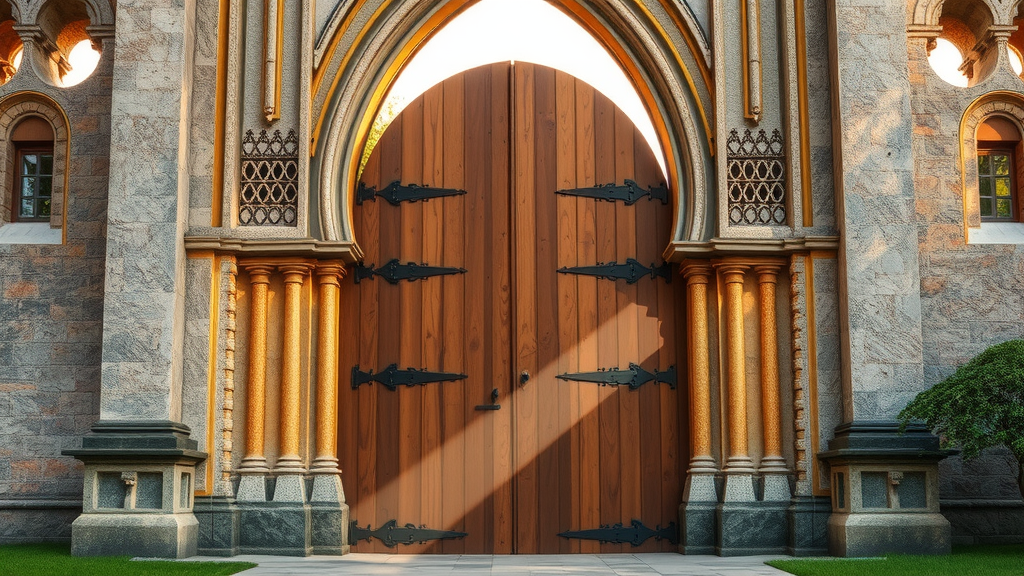Access to religious institutions can greatly influence community engagement and spiritual experiences. Many Catholic parishes actively work to ensure open doors throughout the day, encouraging individuals to enter freely.
The hours of operation vary considerably across different regions, reflecting local customs and community needs.
During special occasions, such as holidays or significant liturgical events, these places often extend their hours to accommodate larger gatherings.
In various locations, open doors symbolize a welcoming atmosphere, inviting both congregants and newcomers for private reflection or quiet prayer. These practices underscore the importance of accessibility in fostering a vibrant parish life and promoting inclusivity within the faith community.
Are Catholic Churches Always Welcoming
Welcoming spaces can vary significantly among different places of worship. Catholic churches strive to create environments where individuals from diverse backgrounds feel accepted and valued.
The degree of inclusivity often fluctuates.
While some parishes have open-door policies that encourage spontaneous visits, others impose specific hours of operation, which can limit accessibility.
Faith, as both a personal and communal journey, deeply influences how inviting each church appears to its congregation. Community engagement through outreach initiatives often enhances the atmosphere, transforming these spaces into spiritual refuges for those seeking solace.
Emphasizing these elements is crucial for assessing the true nature of hospitality within the Catholic tradition.
Understanding Accessibility In The Catholic Church
The commitment of the Catholic Church to inclusive practices significantly influences the community’s experience. Accessibility encompasses various dimensions, reflecting the church’s belief in hospitality and welcome for all individuals.
Physical aspects, such as ramps, Braille signs, and audio aids, facilitate participation in gatherings.
Meanwhile, spiritual accessibility invites everyone to engage fully in events and worship.
Research indicates that approximately 30% of Catholic churches in the U. S. meet all accessibility standards, revealing a gap that can hinder many from enjoying these services.
Challenges persist, including a shortage of trained personnel and resources to implement necessary modifications. Numerous parishes are initiating innovative programs aimed at enhancing accessibility while fostering a spirit of service and community involvement, demonstrating a proactive approach to this important issue.
Accessibility in Catholic Churches
- Approximately 30% of Catholic churches in the U. S. meet all accessibility standards.
- Physical accessibility features include ramps, Braille signs, and audio aids.
- Spiritual accessibility encourages full engagement in worship and events for all individuals.
- Many parishes are launching innovative programs to improve accessibility and community involvement.
The Role Of Open Doors In Faith
Access to spaces of worship is a fundamental aspect of communal life for many individuals. This inclusivity is symbolized by the practice of maintaining open entrances, which not only invites individuals to partake in communal prayer but also signifies a commitment to fellowship.
Historically, faith communities have prioritized openness, ensuring that their doors welcome both regular attendees and those seeking solace or support.
Such an approach fosters a strong sense of belonging and unity among congregants.
The practice of having open doors facilitates outreach initiatives, allowing churches to connect with local needs and engage with the wider community. Many faith traditions hold that such inclusivity enriches the spiritual experience, underscoring the importance of openness in religious life.
How Does The Catholic Church Foster Community
Community building within the Catholic Church is facilitated through a variety of initiatives and programs designed to bring individuals together. Parishes act as local centers for interaction, offering opportunities for social engagement beyond conventional religious activities.
Many of these community ministries cultivate support groups tailored for specific demographics—such as youth, families, and the elderly—thus enhancing connections among diverse members and enriching the community’s fabric.
Charity initiatives play a significant role in outreach efforts, with activities like food drives and shelters being integral to the church’s mission of stewardship.
These church-led efforts often partner with local organizations to address pressing social needs, amplifying the impact of their services and bringing people together through shared acts of goodwill.
Encouragement for parishioners to volunteer is evident in various community service projects. Such opportunities not only assist individuals in their personal confession and stewardship but also foster a spirit of charity, ministry, and devotion within the broader community, enriching the liturgy of life itself.
Community Building in the Catholic Church
- Parishes serve as local hubs for social interaction, facilitating connections beyond traditional religious practices.
- Community ministries create support groups for various demographics, including youth, families, and the elderly, fostering inclusivity.
- Charity initiatives, such as food drives and shelters, are essential to the church’s mission and often collaborate with local organizations to maximize impact.
- Volunteer opportunities in community service projects enhance personal growth and promote a culture of charity and devotion among parishioners.
Exploring The Spiritual Refuge Of Local Parishes
Communities often find solace in places where spiritual practices are upheld, creating environments for reflection and growth. Historically, these ecclesiastical centers emerged to address religious aspirations while knitting together communal bonds.
Congregants participate in regular religious services, such as mass, which provide structured opportunities to cultivate a sense of belonging and shared purpose.
Many parishes maintain open hours, inviting individuals to engage with sacred spaces for personal contemplation.
Interestingly, these venues frequently evolve into unofficial community centers, offering support through various programs and outreach initiatives.
Beyond their spiritual responsibilities, numerous parishes also assist local populations by providing food assistance and other essential services for those in need.
This blending of spiritual and social support underscores the importance of hospitality in worship spaces, allowing congregants to foster connections and assist each other in times of distress.
Importance Of Hospitality In Worship Spaces
Creating an inviting atmosphere in places of worship is fundamental for cultivating a sense of community. This environment fosters belonging among congregants, which enhances the inclusivity of spiritual practices.
Statistics reveal that congregations prioritizing welcoming initiatives experience a 30% increase in attendance.
Such spaces promote connections through volunteer programs, allowing members to engage in meaningful outreach activities that enhance overall satisfaction.
Accessibility plays a pivotal role, addressing both physical and emotional barriers to ensure everyone feels welcomed and valued. Events designed to emphasize pastoral care deepen these connections, transforming newcomers into a supportive neighborhood.
The historical significance of hospitality within various faith traditions continues to influence contemporary practices, enriching the overall spiritual experience. As congregations explore the spiritual refuge of local parishes, the role of hospitality becomes increasingly apparent, setting the stage for future outreach and service initiatives.
Creating an Inviting Atmosphere in Places of Worship
- Congregations prioritizing welcoming initiatives experience a 30% increase in attendance.
- Volunteer programs foster connections and enhance overall satisfaction among members.
- Accessibility addresses physical and emotional barriers, ensuring everyone feels welcomed and valued.
- Hospitality’s historical significance continues to enrich contemporary spiritual practices.
What Events Support Church Outreach And Service
Engagement events within faith-based communities significantly enhance connections among members and the wider neighborhood. Community Service Days utilize the strength of the congregation to address local issues, fostering a support system that strengthens communal bonds.
Research indicates that involvement in these initiatives can lead to a 30% increase in volunteerism, showcasing a commitment to collective well-being.
Health and Wellness Fairs offer open invitations to local residents, often through collaboration with healthcare professionals who provide complimentary screenings.
Such efforts contribute positively to both physical and emotional health, with larger congregations attracting over 1,000 attendees at these fairs.
Seasonal Events, especially during holidays, create an inviting environment, potentially boosting participation by 25% through initiatives like food distributions, which further support those in need. This open invitation to join our religious community fosters an atmosphere of support and a holy, inviting environment for daily prayers.
For many Catholics, engaging regularly in prayer becomes an integral aspect of their spiritual journey, cultivating a significant divine connection that nurtures personal development. This traditional practice intertwines with the community’s belief system, reinforcing shared values and moral guidance among members.
Numerous churches accommodate diverse schedules by offering dedicated spaces for prayer, enhancing accessibility and promoting inclusivity.
Such environments facilitate prayer routines that not only support mental well-being but also foster kindness within the community.
Group prayers and special liturgical events further enrich these experiences, creating a sense of collective purpose. Historical insights illustrate how daily prayer has transformed to meet contemporary challenges, reflecting the vast array of practices and influences present in various cultures throughout the Catholic tradition.
Catholic Prayer Practices
- Regular prayer fosters a deep divine connection and personal growth among Catholics.
- Community prayer reinforces shared values and provides moral guidance within the church.
- Churches offer dedicated prayer spaces to enhance accessibility and promote inclusivity.
- Group prayers and liturgical events cultivate a sense of collective purpose and community kindness.

